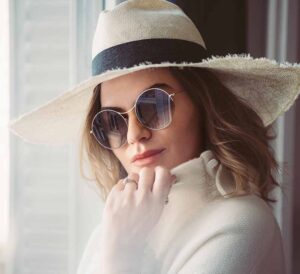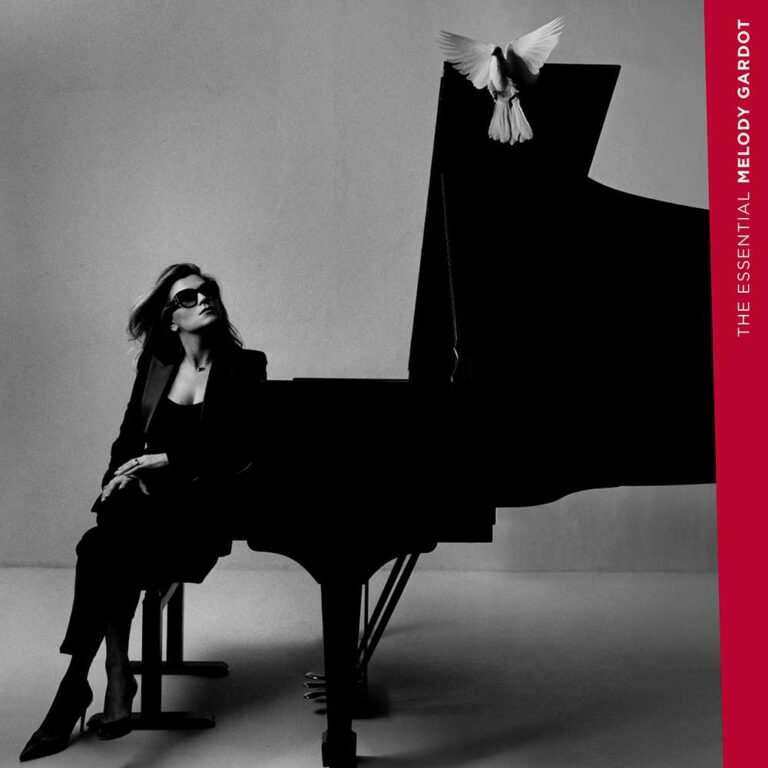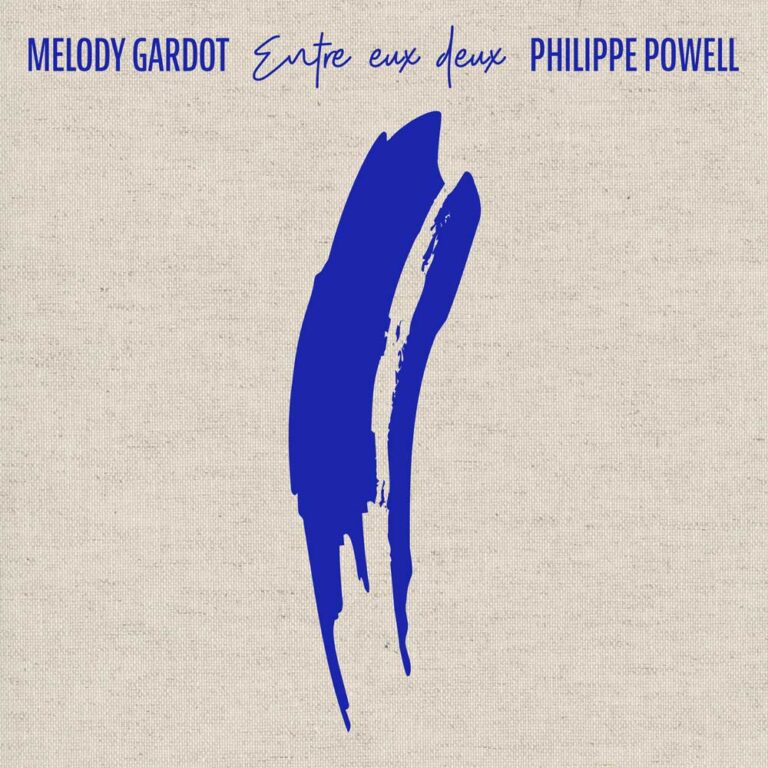When the opportunity presented itself for Melody Gardot to create a retrospective of her career, she approached the process with relish. No wonder – her discography is wide open and full of gems, incorporating traditional jazz, blues, soul and funk alongside chansons and Brazilian songs. Everything Jazz caught Gardot in a reflective mood on the release of her double LP and discovered what went on behind the scenes for some of her most memorable collaborations.
EJ: How was it to look back through your discography to curate the collection of songs for the “Essential” album? What were some of the themes you had in mind?
Melody Gardot: Looking back was quite a lovely process, as if looking back at a photo book of childhood. I see my younger self. There’s a lot of lovely innocence there, and going through the pieces of music for consideration it was as if I was looking at someone else. The theme was simply to make the best possible collection for someone to discover this artist had they not heard her before.
Please tell us about your version of Elton John and Lesley Duncan’s “Love Song”. Why did you choose this song, and how did you go about approaching such a simple and subtle song?
The song was a suggestion from my producer for the album “Sunset in the Blue”. I loved the songwriting and was happy to take it on. Moreover I was thrilled to have Ibrahim Maalouf join in on this song as I respect and admire his musicianship greatly. I was so elated to have him on this track as he brings another story to the song.
How was it working with Ibrahim Maalouf? His inclusion gives this track such poignancy.
He’s an incredible artist, and a wonderful human being. I don’t think there are enough words for me to say how much I adore him. He’s a genius in our time as a musician, composer and showman. He puts on four hour shows, and still has the time to come and greet every invited guest. He’s a superstar and all the while remains beautiful and humble.
If you could put together your very own fantasy band featuring anyone from the history of jazz, who would be in your dream line-up?
Oh that’s a hard question. Well, I would start with Charnett Moffett on bass. We had the pleasure to play together for years and sadly he has passed, but I wish I could somehow bring him back. He was my backbone and my pillar of freedom. So Net-man on bass, then on keys I’d go for Bill (Evans). Charlie (Parker) on sax in his “Summertime” tone. Chet (Baker) would have a feature for the ballads. Gil Evans on arrangements, and I know he’s not dead but I’d have Greg Hutchinson on drums, ‘cause man, that cat can swing.
You recorded such a wonderful re-imagining of “Ain’t No Sunshine”, with the vibraphone and that bass figure. It must be fun taking such a well-known song to a different place. How do you approach re-working songs like this?
Thank you! We had a wonderful vibraphonist at the time on tour. I never understood why people stopped celebrating vibes in modern quartets. It’s an incredible width of sound. When we talk covers it’s usually the kind of song we hear in a hotel bar, and I’ve been there, done that. If I’m going to take on a song, it’s got to be new somehow. The chords, the composition, the feel – they all need to come from another colour. This one was blue.
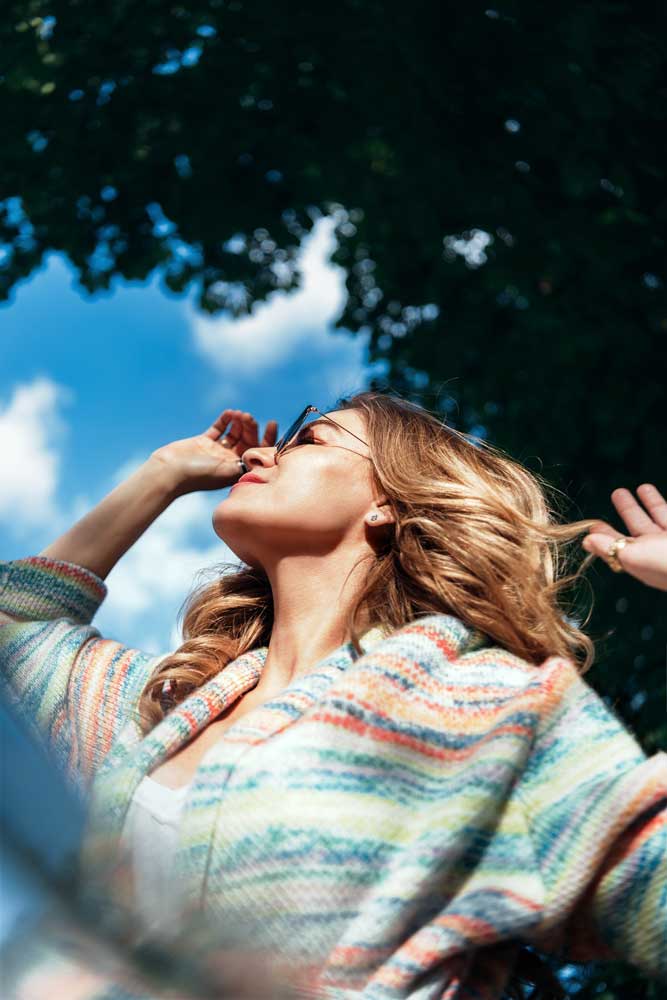
Please tell us about your collaboration with Philippe Powell, in particular “This Foolish Heart Could Love You”. Such a beautiful song, so classic, yet modern.
This was the first song Philippe and I wrote together for this record. He showed me the melody and I went for a walk with my dogs. About 15 minutes later I came back and said “I’ve got it”. We made a little demo at home and the rest was history. Or her-story, shall I dare?
What qualities do you look for in a collaborator?
I love collaborations with other people. Philippe in particular holds a certain elegance and integrity in his approach to composition that I find endearing. He’s a very gifted composer in his own right and yet he was flexible when approaching the nature of songwriting. We shared ideas together without having to fight about “technical” issues of chords voicing and reasons for the changes to be there. It was simply where the heart would lead.
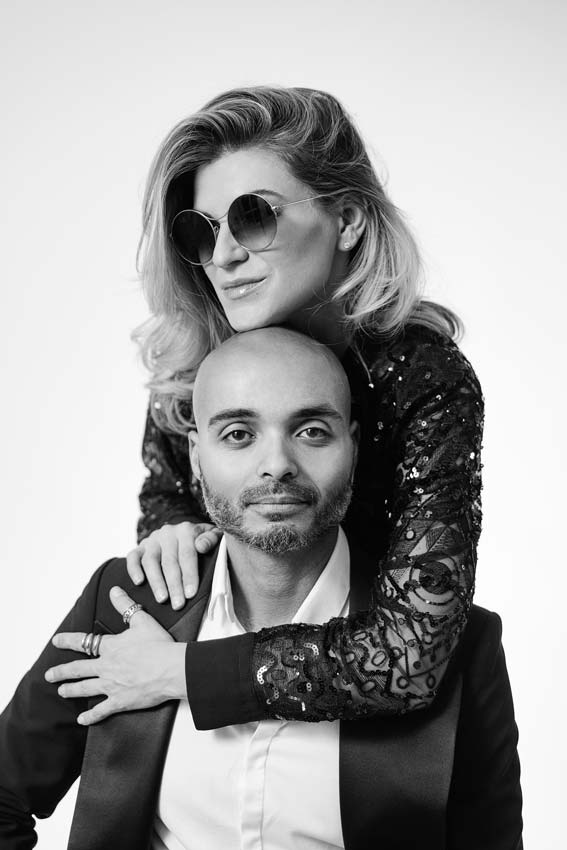
Your album with Philippe Powell is reminiscent of classic duet albums like “Ella Sings Gershwin” or Bill Evans and Tony Bennett. What are some of your favourite duet albums? Who’s particularly inspiring to you in the duo formation?
You got it. Tony and Bill are my favourite. But I walk the instrumental route and must mention “Jasmine” by Keith Jarrett and Charlie Haden.
Please tell us about how your version of “First Song” with Charlie Haden came about. What was it like working with him?
Ha. Nice way to naturally lead here! I swear I didn’t see that coming… We were in the studio together and Charlie asked if I would sing this song with him. Gil and Jacques were there so we invited everyone to jump on and just had at it. Playing with Charlie was like walking through the park. It was so effortless and natural.
It’s fascinating that you sing in different languages. When you’re composing, do different languages require different melodies or different phrasing?
I think so, but it’s more about the feeling. To me, I equate languages (being a singer) to perhaps being a multi-instrumentalist like my sax player Irwin Hall. When it’s French, it’s flute, when it’s Spanish, it’s clarinet, when it’s Portuguese, it’s tenor. Things of this nature would suffice in the metaphorical sense to describe the feeling. It’s colours. Language serves as colour across a composition.
France and Paris in particular has a long tradition of appreciating jazz, from Nina Simone to Eric Dolphy and countless other jazz greats. What do you think of musically when you think of Paris, and how is it to perform there?
It’s a wonderful city still for jazz, and there are incredible audiences every time we come here. I feel so lucky to have the chance to be here and be welcomed as an American. I wish sometimes my own country or even England would have the same reaction or response to what we do live, as there’s so many places I would love to play. I dream of a concert at the Hollywood Bowl with all of these beautiful Vince Mendoza orchestrations, a residency at the Royal Albert Hall, or a residency at Carnegie. But for the moment Paris is calling and we’ve got an eight night residency on the books for June and July. So, until then my Anglo friends. For now Paris is calling and the wine is fine! And Paris is always a good idea.
Read on…Melody Gardot: Don’t Be Afraid Of Jazz
Max Cole is a writer and music enthusiast based in Düsseldorf, who has written for record labels and magazines such as Straight No Chaser, Kindred Spirits, Rush Hour, South of North, International Feel and the Red Bull Music Academy.
Header image: Melody Gardot. Photo: Pierre Hennequin.


